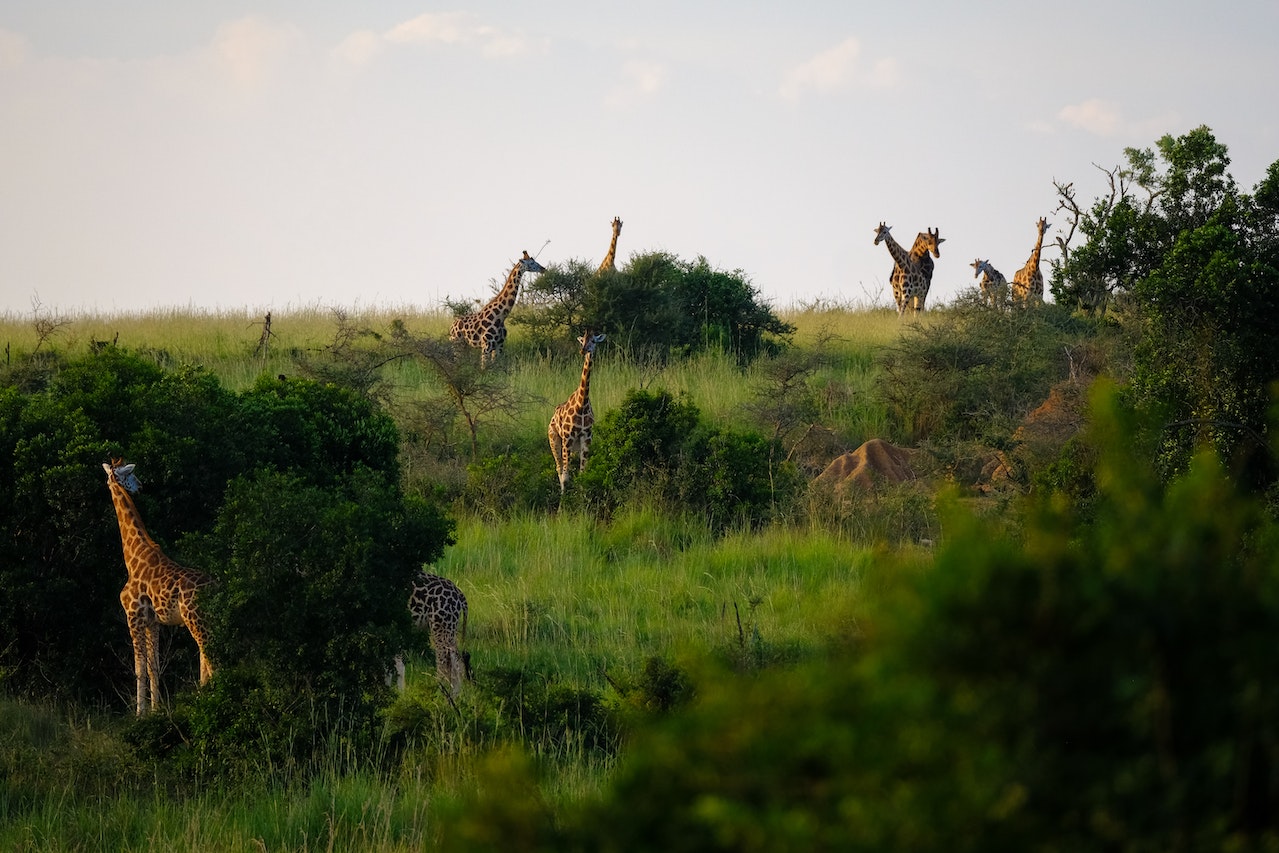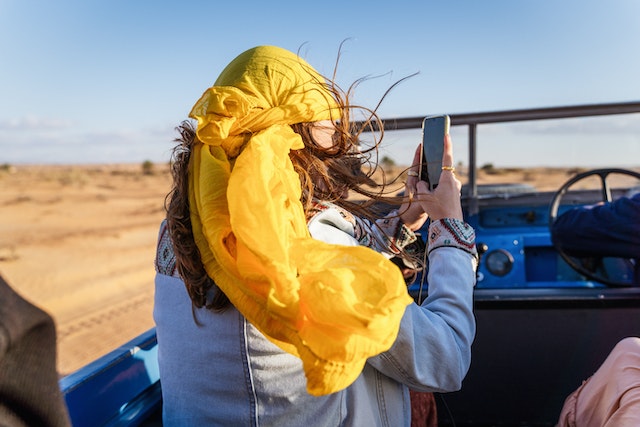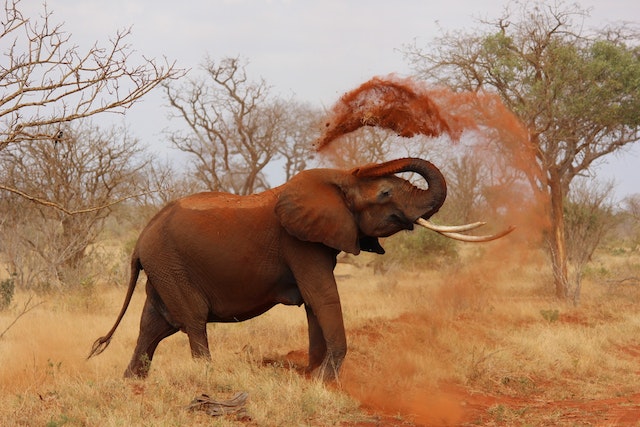
Preserving Africa Wildlife Through Sustainable Tourism
Posted on March 29, 2023
Preserving Africa Wildlife Through Sustainable Tourism
Tourism has been considered a luxury for more than three decades. Things are very different today. People are traveling like never before, and tourism has become one of the most important branches of industry in Africa as well. The impact of tourism could be long-lasting and beneficial to the local ecosystem when ecological awareness follows economic development. Tourism also has its negative effects. Sustainable travel is more than saving the planet; it’s also about preserving Africa wildlife through sustainable tourism for the long haul.
It’s time for Africa.
Many reasons contribute to the widespread belief that Africa is underrated. Poverty, illness, and war were inevitable realities of life there. Because of this skewed portrayal, people were less likely to learn about and appreciate Africa’s rich cultural heritage, ethnic complexity, and natural beauty. Consequently, the world has invested less in Africa and paid less attention to the continent, stunting its growth and development.
With 54 nations and a population of over 1.3 billion, Africa is the second most populated continent after Asia. Additionally, Africa is the world’s second-largest continent; when we talk about the area it covers. More than two thousand languages are spoken on the African continent, representing various cultural traditions and religious mosaics. Egypt, Ethiopia, Ghana, and Kenya are all old civilizations that contributed to the region’s fame for historical significance.
Africa is home to some of the world’s most well-known animals, such as elephants, lions, giraffes, and gorillas, and it is also rich in minerals like gold, diamonds, and oil. Due to its well-known biodiversity, Africa has faced an expansion of tourism in recent years. As tourism develops, more challenges come with it. One of the main ones is preserving Africa wildlife through sustainable tourism.

Africa is proof that sustainable wildlife tourism is possible
Experiences like visiting a safari in Africa and seeing the native animals are once-in-a-lifetime opportunities everyone should do. Ecotourism is increasing in Africa, with visitors seeking eco-friendly accommodations and activities that don’t negatively impact the environment. There are different ways to promote resilient and environmentally friendly ecotourism:
- Search for environmentally friendly accommodation
- Buy local products and souvenirs and support the local community
- Support local initiatives related to environmental protection
- Do not leave waste behind
- Respect the wildlife and their habitats; keep a proper distance
- Chose a safari operator based on ethical principles
- Find out about the laws and regulations that apply in the field of sustainable tourism
Search for environmentally friendly accommodation
Stay at unique lodges and camps with minimal environmental impact throughout your travels. In this way, the local community greatly benefits from this type of tourism. With that being said, when you stay at such lodges and campgrounds, you’re helping out the local community and green initiatives.
Buy local products and souvenirs and support the local community
Souvenirs are popular with visitors. To help the local economy and people, purchase goods made or sold by locals. Beaded jewelry, wooden sculptures, carved products, and more are just a few examples of the many one-of-a-kind mementos that can be purchased from a local artist.

Support local initiatives related to environmental protection
Several African wildlife tours are partners with community-supportive businesses that also take the lead on conservation efforts. Your help and contribution will significantly benefit local conservation efforts and inspire others to become involved. The goal is to ensure that the environment is managed to preserve its cultural and historical significance.
Do not leave waste behind
Please be mindful of your use and disposal habits when on safari in Africa. It’s important to properly dispose of any rubbish, no matter how seemingly tiny it may seem. It pays respect to the local ecosystem.
If you want to support eco-tourism, use sustainable methods and eco-friendly packing tips when you pack. In that way, you can help reduce the amount of waste that goes to landfill. You shouldn’t bring anything you won’t use on the safari that will add extra weight and leave a trace. To protect local animals, it is important to dispose of trash and other garbage properly.
Respect the wildlife and their habitats; keep the proper distance
Seeing a pride of lions or a predator on the prowl is an exhilarating experience. Keep your distance to show respect for the indigenous ecosystems and species, and do what your safari leader instructs. The Safari operator will brief you on the regulations for your safety and the safety of the local animals and ecosystem. You should never approach wild animals alone, and you should never provoke them. It is important to remember that you might potentially transfer human illnesses if you go too close to big primate species like chimpanzees and gorillas. For example, if you have a cold or the flu, you should stay home and rest.

Chose a safari operator based on ethical principles
Not all safari companies are committed to environmental and ethical practices, so be selective in your location and activity choices. Arrange your trip with a reputable expert in Africa who pass on knowledge of sustainable tourism. The travel agency should help protect Africa’s natural ecosystems and wildlife. Before settling on one, checking out some ratings and reviews is a good idea.
Find out about the laws and regulations that apply in the field of sustainable tourism
Safari companies throughout Africa strive to be environmental and economic pioneers in their local communities. Also, several nations have passed laws and policies encouraging such behavior. As a result, the government takes several precautions to ensure the safety of its animals and natural areas. It is common knowledge that poaching threatens Africa’s wildlife, and many local economies would suffer without the revenue of safari tourists.
Preserving Africa wildlife through sustainable tourism can be beneficial.
Going on a wildlife safari is a fantastic opportunity to see Africa’s stunning landscapes. Irresponsible tourists can threaten the continent’s delicate ecosystems, endanger some of the world’s most endangered animals and even harm the local population. Keep in mind that future generations should also enjoy the beauty of Africa. Remember, future generations should also enjoy the beauty of Africa. The responsibility is with both the local community and the tourists who come to visit. As a visitor, promote eco-friendly and ethical travel. By preserving Africa wildlife through sustainable tourism, you do well for the planet and future generations.


Comments are currently closed.